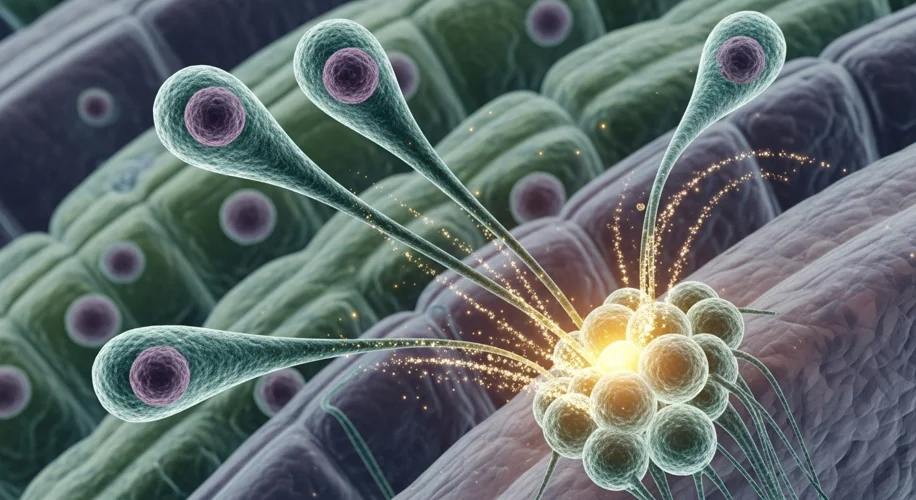As a scientist, I’m always fascinated by the intricate connections within complex systems. We often think of the brain as the body’s command center, controlling everything we do and think. But what if I told you that another vital system, your gut, is communicating in ways remarkably similar to your brain?
Recently, scientists made a discovery that bridges the gap between neuroscience and gut health: they found gut cells that act much like brain neurons. These support cells, called telocytes, have long, thin extensions, similar to the axons of neurons. What’s truly remarkable is how these extensions reach out and deliver signals directly to intestinal stem cells.
This finding is significant because it offers one of the clearest examples yet of how different parts of our body can share functional similarities, even though they seem quite separate. Think of it like finding a similar operating system in two completely different types of computers – it highlights a fundamental biological principle at play.
For years, we’ve understood that the gut has its own nervous system, often referred to as the ‘second brain.’ This system, the enteric nervous system, is responsible for managing digestion independently. However, this new discovery about telocytes adds another layer to this intricate communication network.
Telocytes aren’t nerve cells themselves. They are a distinct type of cell found throughout various tissues, including the gut. Their unique structure, with these long, slender projections called telopodes, allows them to connect with other cells across distances. In the intestine, these telopodes seem to be positioned to directly influence the behavior of intestinal stem cells. Stem cells are crucial for regenerating and repairing the gut lining, a process that happens constantly.
Why is this communication important? Intestinal stem cells need precise signals to know when to divide, differentiate into various cell types (like absorptive cells or mucus-producing cells), and maintain the health of the gut lining. The telocytes, by acting like signaling hubs, could be playing a critical role in regulating this renewal process. It’s like a highly organized postal service within your gut, ensuring the right messages get to the right cells at the right time.
This research opens up exciting avenues for understanding how gut health is maintained and what happens when these communication lines are disrupted. Given the gut’s role in everything from nutrient absorption to immune function, and its connection to our overall well-being, understanding these cellular conversations is paramount.
While it’s not quite like your gut having a miniature brain, it is a powerful reminder of the sophisticated communication happening within our bodies. It underscores the interconnectedness of our biological systems and why a healthy gut environment is so fundamental to our overall resilience. As we learn more about these cellular dialogues, we gain a deeper appreciation for the complexity and elegance of life itself.

